#robin rambles
Explore tagged Tumblr posts
Text
Not sorry for the crimes and atrocities I might commit if they’re not canon by the end of the show
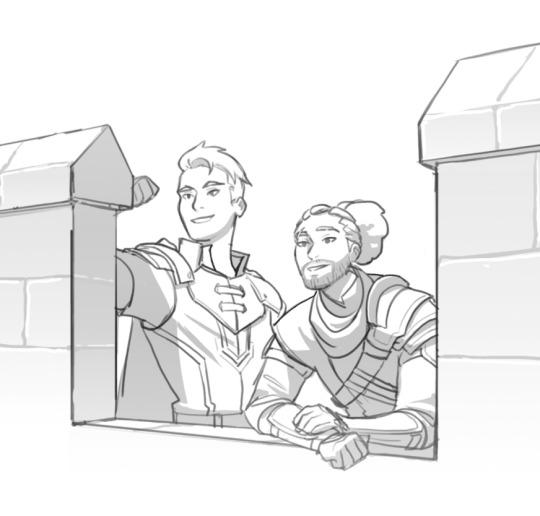
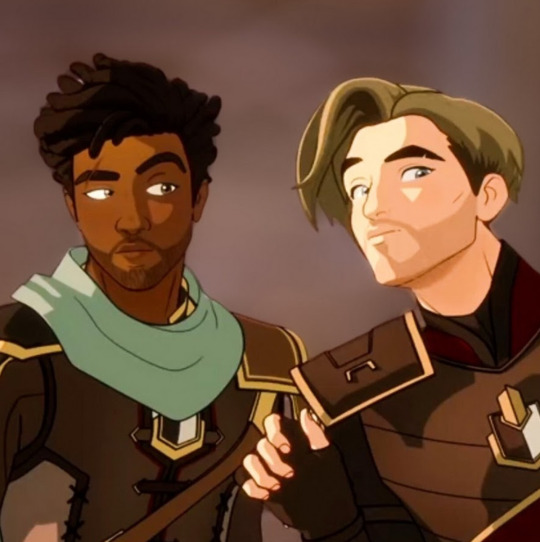
#the dragon prince#tdp#sorvus#soren#corvus#tdp soren#tdp corvus#robin rambles#i love them so much#they make me sick /pos
1K notes
·
View notes
Text
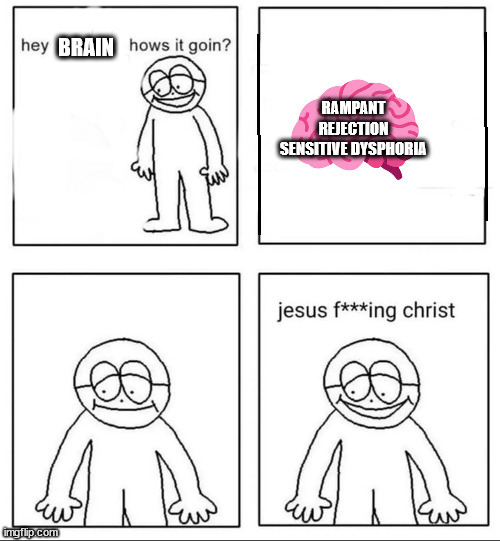
#robin rambles#rsd#rejection sensitivity#rejection sensitive disorder#rejection sensitive dysphoria#adhd
2K notes
·
View notes
Text
A conversation I had today with one of my dommes:
Me: Why am I in your phone as “slow burn girl”?
Her: Because we had a slow burn.
Me: We literally fucked on the third date.
Her: Exactly. A slow burn.
91 notes
·
View notes
Text
Forget “Reduce, Reuse, Recycle”
Now we have “Deny, Defend, Depose”
108 notes
·
View notes
Text

Unfortunately I had to say goodbye to my dear doggo Snowy. She gave 15.5 years of love and I'll miss her dearly. Please hug your pets for me and cherish your time with them. 😔
#maltese#dogs of tumblr#dogs#maltese dog#artists on tumblr#doggo#my dog#snowy#robin rambles#not art#I'll miss you :'(
56 notes
·
View notes
Text

Donate to help get my friends out of jail here! Posting from this blog may be sparse as the protest continues.
345 notes
·
View notes
Text
normalise having tics 👍
191 notes
·
View notes
Text
Dear Capcom,
I and many others firmly believe that two of your characters, Phoenix Wright and Miles Edgeworth, should kiss. Not only because it’s essential to the plot, but because I just think it would be neat.
Thanks,
Robin
#ace attorney#phoenix wright#miles edgeworth#edgeworth#wrightworth#narumitsu#mitsunaru#capcom#robin rambles
376 notes
·
View notes
Text
Bart coming back from the dead: whatcha got there
Tim, holding a wriggling toddler that looks suspiciously like Bart: A smoothie
#robin rambles#bart allen#impulse#kid flash#tim drake#subverting the instant Tim kon allegations with it being Barts clone#red robin#timbart
379 notes
·
View notes
Text
trans refugee needing urgent help, please do not scroll without reblogging.
[plaintext: trans refugee needing urgent help, please do not scroll without reblogging. end plaintext]
hey so my friend @kakebezi-10 really needs some help rn and to give the basics of her situation;
she is a trans woman currently living in a refugee camp in africa with her cats.
she has been a victim of transphobic violence several time before. as of the last i have spoken to her about it, she also cannot work due to transphobia.
unclean drinking water has made her severely ill. she cannot reach treatment at the moment and needs money in order to reach treatment. she has been diagnosed with h. pylori, ulcers, malaria, and typhoid.
she is already struggling enough. i am truly heartbroken to hear that she is sick and i am even more heartbroken to think of what may happen if she does not receive treatment.
if you can’t donate, please at least reblog and maybe send her a kind word. i’m sure she could use it.
her fundraiser below;
@optimistic-autistic and myself are also willing to do art for those who donate to her. please reach out to one of us with proof of donation and we will negotiate your commission.
i know we’re all very scared right now, but now is a time for unity. please help out where you can.
#robin rambles#fundraiser#kakebezi-10#trans#transgender#transfem#transmasc#trans woman#trans man#transsexual#trans pride#trans community#queer#queer community#queer artist#lgbt#lgbtq#lgbtqia#lgbtq community#lgbt pride#fundraisers#gofundme#go fund them#go fund her#go fund me#refugee#refugee aid#discrimination#international
107 notes
·
View notes
Text
I made my advisor (who I’m madly in love with) paper flowers for Valentine’s Day because she’s had a really bad week and the store was out of flowers. And now I’m reeling because she gave me a big hug and my sweatshirt smells like her. 💀💀💀
Happy Valentine’s Day Everybody!
105 notes
·
View notes
Text
You can't have a character called "Bunny" and expect me to imagine them as anything but a twink
#bunny corcoran#richard papen#camilla macaulay#charles macaulay#henry winter#francis abernathy#the secret history#tsh donna tartt#donna tartt#robin rambles#robinrambles
85 notes
·
View notes
Text
I feel the need to post that I am a fan of both canon and fanon interpretations of dc characters. This includes fanon Tim. And I will not be a part of any discourse surrounding “mischaracterisation” or “being unfaithful to the source material” or anything. So, respectfully, if you post content hating on fans for only getting info from fanfics or tiktok or whatever, I will block you 🥰
#dc posting#tim drake#batfam#batman#dc comics#dc#i’ve gained a few followers this week#so i’m making my stance clear.#let people have fun and engage in media however they want#you don’t have to interact!!#you can look away!!#it’s okay!!!#canon vs fanon#dc fanon#Robin Rambles
52 notes
·
View notes
Text
My Roman Empire
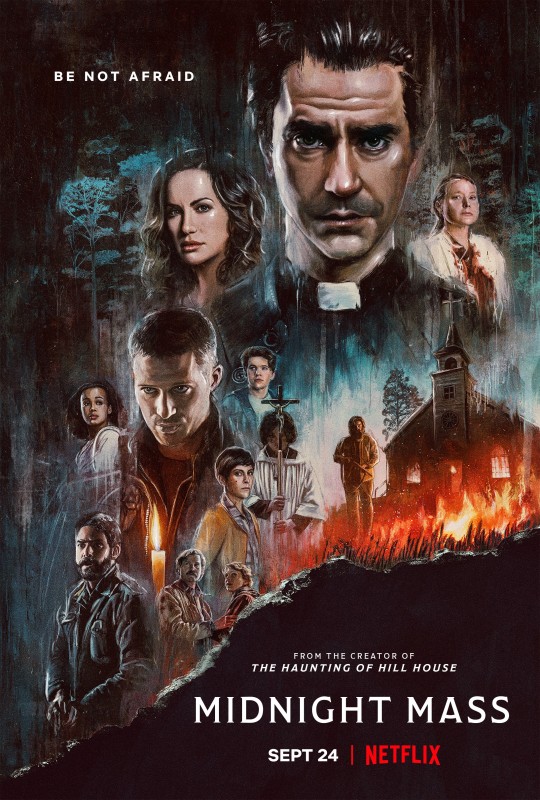



#mike flanagan#midnight mass#the haunting of hill house#thohh#the fall of the house of usher#the haunting of bly manor#robin rambles
665 notes
·
View notes
Text
a lil headcanon about the end of NPMD (spoilers ahead, obvs)
i was thinking about NPMD this morning (as you do) and i realized something.
by the end of NPMD, when max's soul is taken by the lords? who do you think is going to torture him the most?
tinky.
let me explain.
who was tinky watching like a hawk during "the summoning"? pete. another spankoffski. another prize for his toybox. he could hardly keep his hands off him. you could see that he wanted to lunge at pete and grab him right away. he probably even got a bit mad when wiggly stroked the boy's face.
but it was okay. because this would be perfect! he'd have a Petey all of his own! and then he could torture the brothers together and they can watch each other suffer which will make them BOTH suffer more-
but then. BUT THEN.
max stopped steph from shooting pete. and either max moves at super ghostly speed or some magic imbued in his undead form from the waylon place gave him time-slowing powers. but either way, he stopped that bullet.
pete was going to die. and he wasn't going to heaven or hell. he was going to be taken to the Black, where he would definitely be tinky's new favorite toy.
so how dare this shitty zombie jock use this ripoff version of his time-controlling powers. and ESPECIALLY how dare he use them to keep pete from getting shot and his soul falling straight into tinky's terrifying grasp?
then he has to watch grace and max have sex, which is absolutely fucking disgusting. he was already seething, but now he knows that he's not going to get a good toy out of this deal. he's getting this stupid shitty kid that no one liked.
and he's not a spankoffski.
so when the lords do take his soul, when max is pulled into the Black, of course wiggly is gleeful about this. all of them are. oh, how they'll enjoy torturing him for all eternity, exposing him to unimaginable horrors and unspeakable evils. what a fun new toy!
but they decide that their furious bastard of a brother should get first dibs. after all, they knew tinky was really looking forward to having a Petey. and it's the only thing they can think of to calm him down, because "rage" doesn't even begin to describe how tinky's feeling right now.
besides, now that they have grace as their fun little soulsnatcher, they'll have plenty of other toys to play with.
so they gladly hand max over to tinky.
max thought he knew what fear was. skele'ns, ghosts, people forgetting about him, his (probably abusive) father.
no.
this is going to be way worse.
he sees tinky's horrific, goat-like grin, feels his crackling, angry energy radiating in the Black and surrounding him.
tinky's voice is low, a deep growl that shakes max's bones. he wears a smile that is anything but happy.
"you're going in the box now, maxie-poo. i hope you have..."
"... a great time." 💛
#the lords in black#lords in black#npmd#nerdy prudes must die#npmd spoilers#npmd headcanons#starkid#team starkid#hatchetfield#hatchetverse#t'noy karaxis#max jagerman#tinky#tinky starkid#robin rambles#thank u if u read all this
156 notes
·
View notes
Text
Summary: Y/N is Eddie Munson's twin sister, no one from the gang has met her since she's been in college. One day Robin meets her only to find out so has Steve...and both of them fell in love....fuck.
Robin came into work with a skip in her step. She just met the most beautiful woman she ever met...well she just saw the most beautiful woman she's ever saw, before she could work up the courage to talk to her she was already gone. Clocking in she sighs dreamingly thinking of those brown eyes and curls. She needs to find out your name.
Steve watched his friend walk into work like she was walking on a cloud, "What got you all smiling and giddy?" he asks with a smirk, complete prepared to tease her on her newest crush. Steve has seen this look before, he has had this look before. Hell the day before he came into work with that look! He knew it had to be a girl.
Robin blushed and decided that there was no point in trying to hide this from Steve. "There's a girl...but god Steve! She was beautiful, a fucking goddess I'm telling you! You should've seen her, the curls, the eyes...Oh my god those eyes! They were a beautiful deep brown" Robin continued to ramble, making Steve's smirk drop. "Wait wait wait was she wearing like a leather jacket? A-A pair of like really beat up red converse?" Steve asked timidly, scared to finding the answers out. Robin shakes her head "I think she was, I mean I wasn't exactly looking at her feet Steve" she says rolling her eyes. "She was far too beautiful to look anywhere else" She shrugs before focusing her attention more on Steve's features before her own smile drop.
"No....no you're not telling me that was Y/N..." Steve nods pitifully.
"Fuck." They both mumble after a few minutes of silently staring at one another. Before either could say anything else the bell chimes signalling a customer. They both turn to greet whoever just walked in and as they do they freeze again seeing Y/N and Eddie Munson walking in and going to the horror section.
"Fuck!" They both say once again.
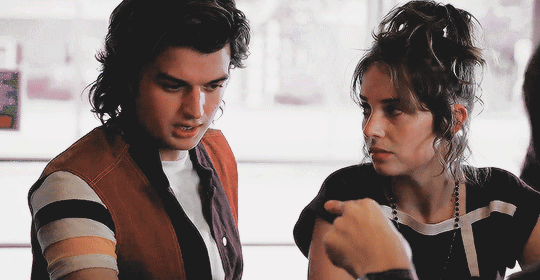
#Eddie munson x sister reader#Steve Harrington imagine#robin buckley x female#robin buckley#robin stranger things#robin buckley imagine#robin buckley x reader#eddie munson imagine#eddie munson x reader#stranger things#eddie munson#stranger things imagine#steve harrington#stranger things x reader#robin rambles#steve x y/n#steve harrington stranger things#steve harrington x reader
207 notes
·
View notes